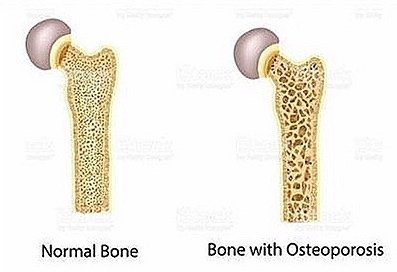I Spy With My Little Eye, Something Beginning With
Calcium. The question is - am I looking at calcium citrate or calcium carbonate? Is there a difference and does it even matter?
Yes indeed, there is a difference, and this month I’m thinking you might like to know why I worry so much about that difference…
Can I start by asking if you know another name for osteoporosis? Does ‘silent disease’ sound familiar? You may already know that osteoporosis is called ‘silent’ because it happens without us even knowing - over days, months and then years. But how? Well, our bones are breaking down and getting rebuilt every day, and that process is called bone turnover.
Bone turnover is like the process of restocking shelves at a grocery store. On a Monday morning, the shelves are fully loaded with stock and looking nice ‘n’ healthy or strong – just like our bones being packed full with calcium. As the day goes on, more and more goods get sold from the store, and staff must restock to avoid the shelves becoming as bare as Old Mother Hubbard’s cupboard.
Calcium is just the same to us. It gets taken from our bones for keeping our blood calcium levels stable. We need those blood levels stable so our nerves and muscles can work properly. But, if we don’t get enough calcium from our food and supplements to replenish our bone reserves each day, that precious supply will ‘sell out’ which means really weak bones to say the least. The plot thickens though, and now I start sweating about the difference between calcium citrate and carbonate.
Drews Hotseat – to be calcium citrate or not to be carbonate, that is the question…
Bariatric surgery means a commitment to supplements for life. Current best-practice guidelines are for at least 1,200mg calcium per day from food and supplements, and while calcium-fortified milk is the best choice for using in hot drinks or protein shakes and the like, that guideline means calcium supplements are crucial for consistently achieving an adequate intake every day.
Calcium citrate is superior to carbonate for the bariatric population. This relates to an absorption issue, as all forms of bariatric surgery (sleeve or bypass) mean a smaller stomach size, less stomach acid, and an overall impaired ability to absorb nutrients.
A key difference between calcium citrate and carbonate is that citrate can be taken without food while carbonate must be taken with a meal for optimal absorption. The size of calcium carbonate supplements alone may seem like a meal, and that makes eating enough protein at breakfast, lunch and dinner tricky if not impossible. On the flip-side, calcium citrate taken any time between the three main meals makes achieving your daily protein needs at breakfast, lunch and dinner quite possible each and every day too.
The Take Home
Osteoporosis scares me. The general population is at risk as we all get older and wiser, but that risk increases among those having had bariatric surgery.
I come across patients taking calcium carbonate and thinking they’re doing a great job of caring for their bones, but some of those supplements also contain iron which makes my worrying mind go into over-drive. Taking calcium of any form and iron together is like a green light for the ‘silent disease’ considering iron and calcium taken together prevent absorption of these two nutrients. Remember, it’s really important to have at least two hours between iron and calcium supplements, and to have your calcium in a split dose with at least 2 hours between each dose.
At the end of the day, I hope I’m leaving you with something to think about for protecting yourself from osteoporosis with what my little eye can spy today – Calcium Citrate.
All the best until next month.




